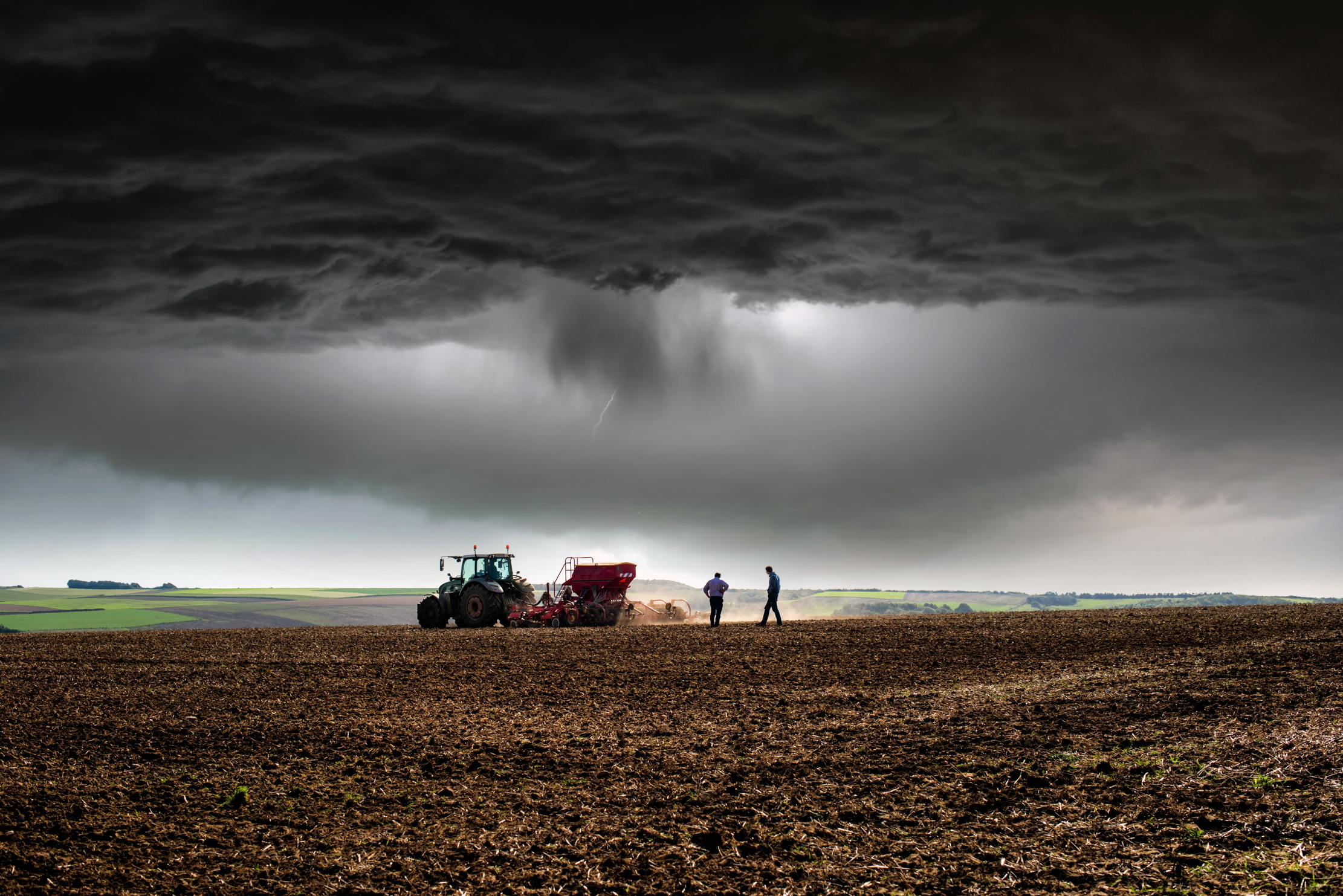The profitability of agriculture underpins everything in the countryside. Confidence is at rock bottom
Weather, taxes and no subsidy. It's not a great time to be producing food in Britain. Agromenes sounds the alarm.


The show season is fully under way. Last month, the Staffordshire, the Suffolk and the Royal Bath and West; last week, the Royal Cornwall, the South of England and the Cumberland. They will continue with national festivals, including the Royal Welsh and the Royal Highland, down to smaller events from Framlingham in Suffolk to Nidderdale in North Yorkshire and Kington in Herefordshire. The coverage, variety and enthusiasm is remarkable and the voluntary involvement unparalleled — a welcome reminder of the vibrancy of rural life.
All this depends on the profitability of agriculture, which underpins everything in the countryside. There, confidence is at rock bottom. Increasingly battered by extreme weather, farmers now have to deal with a Government that appears oblivious to their concerns and ignorant of the facts of rural life.
At the same time, they are coping with a revolution. Since the late 1930s, Britain has supported agricultural production to ensure food security. Whether deficiency payments or the CAP, the principles have been the same for more than 80 years. We have used subsidy to produce more food at home and reduce the price the consumer pays for it. Governments of all political colours have continued the system and cheap food has become the accepted aim so that, judged in the context of the average wage, Britain has very nearly the cheapest food in the world.
That has come at a cost to the taxpayer. We have a farming system that is dependent on support and farmers who have never experienced a world without production subsidies. When we left the EU, the Conservative Government changed all that and said farmers wouldn’t be paid to produce food, but for what was called ‘public goods’.
It all sounded very attractive. Money for hedges, wildlife, biodiversity, animal welfare, footpaths and access. The production support would be phased out and the new environmental schemes would take up the slack. Meanwhile, it was assumed that food prices would not be affected.
'Farmers were now cut off from the only really successful environmental alternative'
Ministers thought it would be a simple way of showing the advantages of Brexit. They forgot that they hadn’t the expertise to manage so enormous a change. Labour had abolished the Ministry of Agriculture (MAFF), with its unrivalled understanding of farming, and jumbled it up in a Department of Environment, Food and Rural Affairs (Defra).
Their antagonism to agriculture showed in their refusal for the ‘F’ in Defra to stand for farming. Unsurprisingly, this hotch-potch department neither retained nor recruited the detailed expertise that MAFF had had. As a result, as ministers cut production payments, the replacement environmental schemes were slow, uncertain and lacking in detail. The take-up was thus limited until, at last, the Tories produced the Sustainable Farming Incentive (SFI). It was a real success, with 37,000 funding agreements completed. Then, without warning, the new Government closed the scheme and gave no details of a new one.
Exquisite houses, the beauty of Nature, and how to get the most from your life, straight to your inbox.
It was another blow to the farming community already hit by Labour’s family-farm tax and the end of production payments. Farmers were now cut off from the only really successful environmental alternative.
All this is against a background of unprecedented weather conditions. A year ago, flooding was so great that many farmers couldn’t harvest their crops or plant seeds for the next year. Now, the lack of rain has already killed crops, reduced yields and sent irrigation bills soaring. It’s in these conditions that farmers are being asked to work with a broken support system. Food prices are rising and will rise further with the Government’s new packaging tax. Most farmers’ incomes are falling when the world’s food supply is very uncertain.
Agromenes has to sound the alarm. This Government must change course and change it now.
Country Life is unlike any other magazine: the only glossy weekly on the newsstand and the only magazine that has been guest-edited by His Majesty The King not once, but twice. It is a celebration of modern rural life and all its diverse joys and pleasures — that was first published in Queen Victoria's Diamond Jubilee year. Our eclectic mixture of witty and informative content — from the most up-to-date property news and commentary and a coveted glimpse inside some of the UK's best houses and gardens, to gardening, the arts and interior design, written by experts in their field — still cannot be found in print or online, anywhere else.
